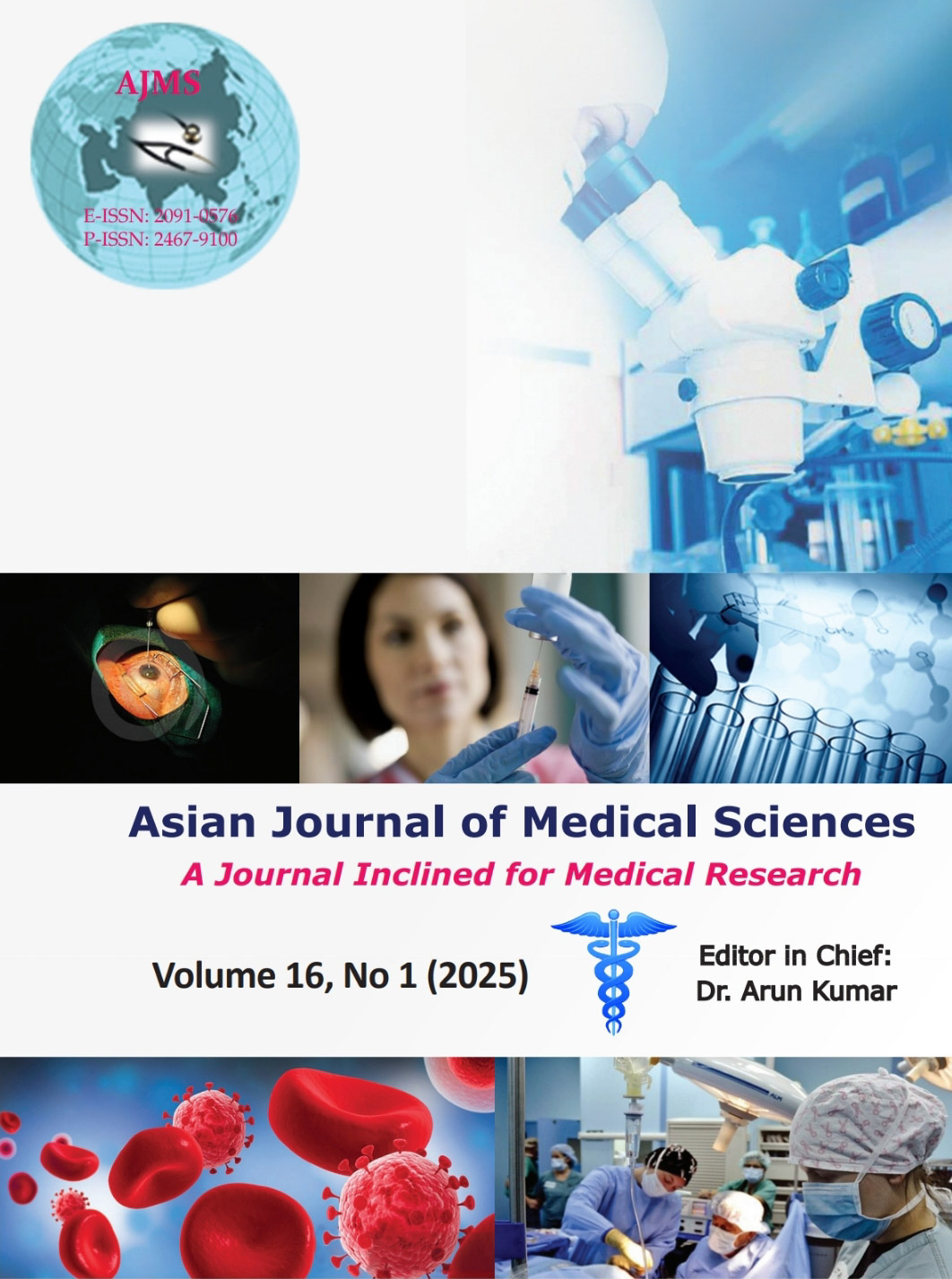Alternate nostril breathing (Nadi-Shodhana Pranayama) and its impact on perceived stress and hearing threshold among medical students; a prospective study
Keywords:
Alternate nostril breathing; Perceived stress; Pranayama; Hearing thresholdAbstract
Background: Medical students often experience significant psychological stress, which can negatively impact their academic performance, cognitive functions, and overall well-being. Psychological/emotional stress can also affect hearing if severe or if it lasts long enough. Amongst stress reduction strategies, meditation techniques are found to be helpful.
Aims and Objectives: This study aimed to assess the effect of alternate nostril breathing (Nadi-Shodhana Pranayama) on perceived stress and auditory thresholds (AT) among medical students.
Materials and Methods: Following institutional ethics committee approval, a sample of 60 consenting students aged 18–26 years participated in a 3-month intervention, where they practiced pranayama for 15–20 min, 5 days a week. Baseline and post-intervention data were collected using the perceived stress scale (PSS) and pure tone audiometry.
Results: The results demonstrated a statistically significant reduction in PSS scores (P<0.001), indicating decreased stress levels. In addition, ATs in both ears improved, with a more pronounced change observed in the left ear (P<0.001). These findings suggest that pranayama not only reduces psychological stress but also enhances auditory perception, possibly through the regulation of stress hormones and improved inner ear functioning.
Conclusion: The study supports the use of pranayama as a simple, non-invasive intervention to reduce stress which tends to improve cognitive performance in medical students, contributing to better academic outcomes and overall well-being. Further research is warranted to explore long-term benefits and potential mechanisms behind the observed improvements in auditory function and stress resilience.
Downloads
Downloads
Published
How to Cite
Issue
Section
License
Copyright (c) 2024 Asian Journal of Medical Sciences

This work is licensed under a Creative Commons Attribution-NonCommercial 4.0 International License.
Authors who publish with this journal agree to the following terms:
- The journal holds copyright and publishes the work under a Creative Commons CC-BY-NC license that permits use, distribution and reprduction in any medium, provided the original work is properly cited and is not used for commercial purposes. The journal should be recognised as the original publisher of this work.
- Authors are able to enter into separate, additional contractual arrangements for the non-exclusive distribution of the journal's published version of the work (e.g., post it to an institutional repository or publish it in a book), with an acknowledgement of its initial publication in this journal.
- Authors are permitted and encouraged to post their work online (e.g., in institutional repositories or on their website) prior to and during the submission process, as it can lead to productive exchanges, as well as earlier and greater citation of published work (See The Effect of Open Access).




